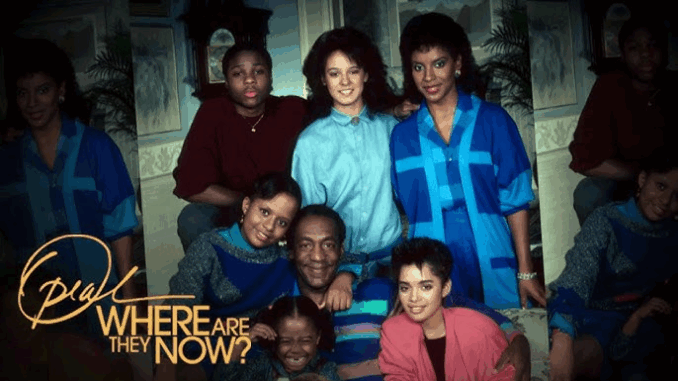
When The Cosby Show first aired in 1984, it redefined American television. At its heart was the Huxtable family—a successful African-American household led by Cliff Huxtable, a humorous, wise obstetrician, and his equally sharp wife, Clair, a lawyer. While the show entertained with its warmth and comedy, it also offered moments of profound wisdom. One such moment stands out even decades later: the famous “steak dinner” scene between Cliff and his son-in-law, Elvin.
In this particular episode, Elvin, newly married to the Huxtables’ daughter Sondra, is grappling with the realities of adulthood. He appears at the Huxtable home in distress after an argument, unsure of his place and responsibilities. Cliff invites him to dinner and uses an unusual metaphor to teach a critical life lesson.
As they sit at the dinner table, Cliff serves Elvin a beautifully cooked steak—on a trash can lid. Elvin is stunned and hesitant. Cliff then delivers the lesson with characteristic calm: “That’s how you presented yourself. You had a perfectly good message, but the way you delivered it was all wrong.”
This moment encapsulates one of The Cosby Show’s greatest strengths: blending humor with insight. The metaphor was clear and effective—Elvin’s message and intentions may have been good, but his tone, attitude, and delivery clouded it entirely.
What made this scene memorable wasn’t just its clever script, but its relatability. We’ve all, at some point, failed to communicate properly—presenting our “steak” on a “trash can lid.” Cliff Huxtable’s calm, fatherly way of guiding the younger generation felt authentic. It reflected not just an idealized family, but an idealized form of mentorship and intergenerational dialogue.
Though The Cosby Show is viewed differently today in light of controversy surrounding its star, its contribution to television and culture remains significant. The show offered a mirror to society and occasionally, a guidebook. The “steak on a trash can lid” moment is more than just a punchline—it’s a timeless reminder that how we communicate matters just as much as what we communicate.
In a world increasingly driven by quick takes, tweets, and hot tempers, perhaps we could all use a little Huxtable wisdom: serve your message with care—or risk it being thrown out, no matter how good it tastes.